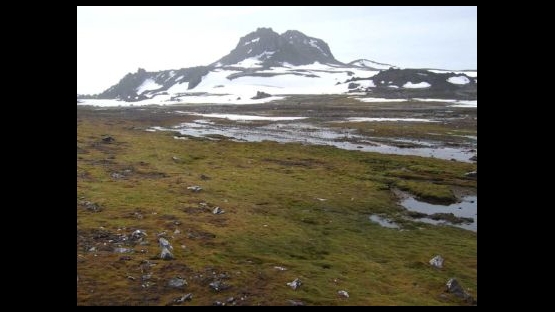Climate change is a significant global challenge, and it is becoming an important area of focus for the IAEA's technical cooperation (TC). Through TC projects, IAEA Member States are learning to use nuclear techniques to contribute to international efforts to combat climate change. For example, natural tracers - stable or radioactive isotopes - can be used to assess the impact of climate change on communities and the environment around the world, thus providing valuable information to policy makers responsible for the development of climate change mitigation and adaptation strategies.
A meeting has been held 17 - 21 June 2013 at the IAEA's headquarters in Vienna to discuss a proposal for a new interregional TC project titled 'Climate change and its impact on glacier retreat and land-water-ecosystem quality in polar and mountain regions across the world: from assessment to action'. The proposed project builds on earlier pilot TC projects 'Using Environmental Radionuclides as Indicators of Land Degradation in Latin American, Caribbean and Antarctic Ecosystems' and 'Developing Soil Conservation Strategies for Improved Soil Health', which validated the potential of nuclear techniques to improve the understanding of the impact of climate change in polar and mountainous regions. The June meeting brought together 16 people representing a number of research institutions and UN organizations including FAO/IAEA, UNEP and UNU to discuss the actions necessary to identify the impact of climate change on fragile polar and mountainous ecosystems and formulate recommendations for improved conservation and management policies. During the meeting, participants also developed a comprehensive work plan for the proposed project.
The proposed project will focus on the impact of rising temperatures caused by climate change on seasonal snow cover, glacial retreat, permafrost decline and related soil degradation and sediment redistribution. The project will also study the implications of changing climatic conditions on water availability, as well as on the quality of land and water in polar and mountainous regions.
"The specific role of the IAEA lies in the technical support we provide to the participants from developing and developed countries. We train them how to use isotope techniques as well as nuclear and complementary techniques in an integrated and multidisciplinary way. These techniques help them to better understand the impact of climate change on the frozen parts of the Earth's surface and the land-water-ecosystem quality in polar and mountainous regions. The aim is to improve their management and conservation," says Gerd Dercon, the lead IAEA scientist for this project.
Much of the world's population depends on mountains for water and food as well as other means of livelihood. The impact of rapid climate change in mountain regions, however, poses a serious threat to the sustainability of people's livelihoods in these areas. The information gathered through the proposed TC project is expected to provide valuable scientific input for policy makers and international organizations dedicated to protecting the global environment, for the formulation of appropriate policies and standards on the sustainable management of mountainous regions and climate change adaptation. Such outputs, in turn, will help to maintain the living standards of local people.


